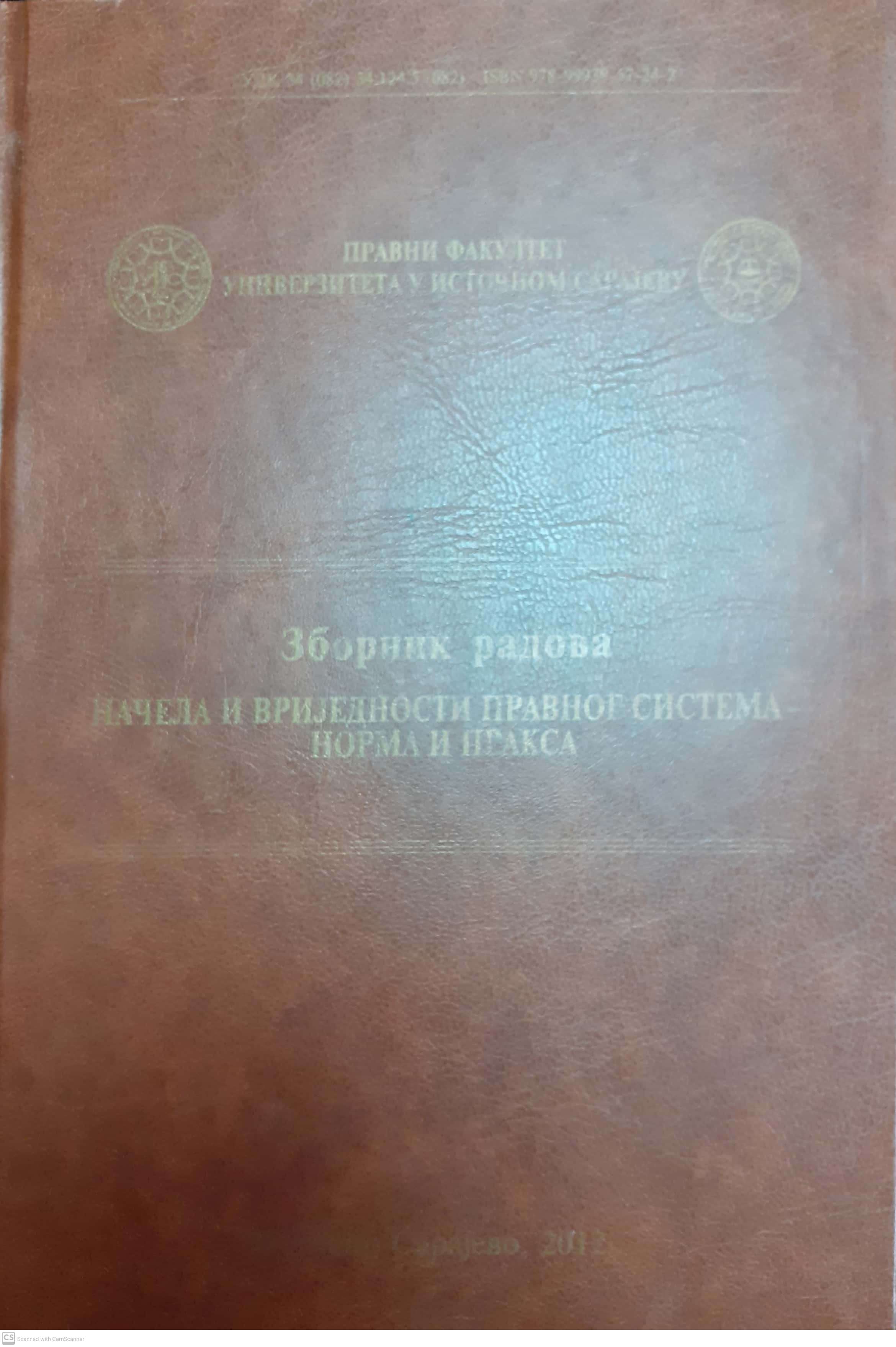Васпитне мере појачаног надзора у српском законодавству и пракси
Educational Measures of Increased Supervision in Serbian Legislation and Practices
Author(s): Vladimir V. Veković
Subject(s): Criminal Law
Published by: Правни факултет Универзитета у Источном Сарајеву
Keywords: Juveniles;Criminal snactions against juveniles;Educational measures of icreased supervision;The Law of Criminal Juvenile Offenders and Criminal Protection of Juveniles;
Summary/Abstract: Educational measures of increased supervision, which traditionally have an essential place in the system of criminal sanctions against criminal juvenile offenders in the Republic of Serbia, in 2006 by the autonomous juvenile criminal legislation, have been significantly modified, and their register extended. Making a concept of contents for these educational measures, beside the positive experience in applying the established solutions, the legislator also had in mind the contemporary tendencies in the juvenile criminal law science and comparative law practice as well as the standards established in the sequence of relevant universal and regional documents in this field.The application of the autonomous juvenile criminal legislation for almost six years in the Republic of Serbia indicates that great possibilities of these educational measures in prevention and suppression of juvenile crime have not been entirely realized. In vast majority of cases courts have been adjudicating the enforcement of the measure of increased supervision by parents, adoptive parent or guardian and measure of increased supervision by guardianship authority. On the other hand, the measure of increased supervision in another family has hardly ever been adjudicated, since there are no lists of specialized foster families where this measure could be enforced and there are no criteria established for the family selection. Hence there are no conditions for the enforcement, the measure of increased supervision with daily attendance in relevant juvenile rehabilitation and educational institution has been adjudicated sporadically. Since the courts imposes measures which can be applied in practice, it is obvious that the educational measure of increased supervision selection in our country has been determined, above all, by financial, personnel and organizational limitations, and not by actual requirements for prevention and suppression of juvenile crime. For that reason, creating adequate conditions for enforcement of measures of increased supervision, which has been on the margins up to now, imposes as an imperative.
- Page Range: 681-698
- Page Count: 18
- Publication Year: 2011
- Language: Serbian
- Content File-PDF

